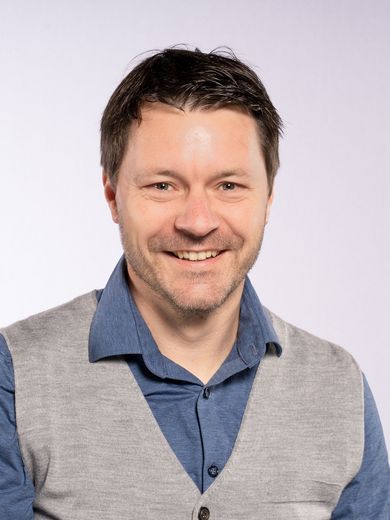![[Translate to English:] [Translate to English:]](/assets/hsb/de/_processed_/5/3/csm_BauenUmwelt-Baustellentour-6958_blau7_177b73a0d7.jpg)
School of Architecture, Civil and Environmental Engineering
| Degree | Bachelor of Science |
|---|---|
| Start of study | Winter semester |
| Application period Winter semester | 01 June until 15 July |
| Standard period of study | 7 semesters |
| Credits | 210 |
| Accredited | Accredited by the ACQUIN Accreditation, Certification and Quality Assurance Institute and notified to the European Union in 2018. |
| Admission restricted | Yes |
| Admission requirements |
|
| Language of instruction | German and English |
| Faculty/institution | School of Architecture, Civil and Environmental Engineering |
| Integrated stay abroad | No |
Design and construction in the main areas of civil engineering, are at the centre of your strongly practice-oriented Bachelor's degree programme. As a civil engineer working together with many other project participants, you will actively shape the sustainable future of our cities and regions. Your varied work environment ranges from construction and technical planning to management and site supervision.
Civil engineers work as team players in Germany and abroad in close cooperation with architects, project planners and other experts in different disciplines. Public transport companies, engineering service providers or the field of real estate and property development also offer you future-oriented career opportunities.
Information for students on lecture schedules, exam dates and other news
This Bachelor of Science degree program offers a broad range of courses in civil engineering. Structures for buildings, traffic, water and civil engineering are the focus of your practice-oriented studies. As a civil engineer, you will actively shape the sustainable future of our cities and regions together with many project participants.
The continuous practical relevance in all study programs is an outstanding quality feature of civil engineering at Bremen University of Applied Sciences:
Civil engineers work closely with architects, project planners and other engineers as team players in Germany and abroad. Their varied work environment ranges from object and specialist planning to construction management and supervision. Transport companies, service providers or the real estate and project development sector also offer you
and project development also offer you forward-looking career opportunities.
There are around 80,000 private construction companies in Germany, as well as a large number of engineering and planning offices, ranging from small and medium-sized companies to international corporations. Employers can be found in a wide range of industries. Of particular importance are the construction industry, building trades, engineering offices and public authorities.
In your practical studies at HSB, you will be trained as a generalist among civil engineers.
In your basic studies you will acquire basic knowledge in mathematics, science and technology and will be prepared for engineering applications.
Building on this, you will receive a broad overview of all the main specialist areas of civil engineering in the specialist studies program. There you can choose one of the two specialization profiles "Structural Engineering" and "Infrastructure" or study without specialization. Based on Building Information Modeling, you will work on interdisciplinary problems with BIM-compliant tools. With the final Bachelor's thesis, you will prove that you can solve challenging theoretical and application-related problems as well as practical tasks.
The research-strong institutes and laboratories offer optimal working conditions for your study projects and provide an insight into current research tasks.
The faculty supports you in your applications for financial support such as the Deutschlandstipendium, the Studienstiftung des deutschen Volkes, the Detlef Hegemann Stipendium or the Straßenbaustipendium.
© Hochschule Bremen - Sabrina Peters
For your practical study projects, the IT infrastructure and the research-strong laboratories of the faculty offer you optimal working conditions and give you an insight into current research projects. Virtually from anywhere, you can view data or use complex software that would not run on your own hardware. All learning rooms are equipped with streaming-capable media, so that presence and home learning can be linked.
An integral part of the study program is a practical semester, which can be carried out either in the fifth or in the seventh semester. During this practical phase, you will work in construction companies, engineering offices, construction offices, laboratories or institutes. This enables you to apply your acquired knowledge directly to engineering tasks.
Accompanying the theory modules, a project module is offered each semester in which you will work independently in small groups on practical professional problems throughout the semester. The project modules introduce you to the professional field of civil engineering and teach you techniques of scientific work, project management, as well as experience with group dynamic processes.
A wide network of cooperation partners in the construction industry, urban planning and environmental engineering anchors the study program's offerings in the region and beyond.
Studierender bei einem Traglastversuch
© Hochschule Bremen - Ana Rodríguez
For your practical study projects, the IT infrastructure and the research-strong laboratories of the faculty offer you optimal working conditions and provide an insight into current research projects. With the Detlef Hegemann Digital Platform, the Department of Civil and Environmental Engineering provides you with a Virtual Desktop Infrastructure (VDI), which you can access via the desktop computers in the PC pool rooms or via your notebook. Virtually from anywhere you can view data or use complex software that would not run on your own hardware.
All learning rooms are equipped with streaming-capable media, so that presence and home learning can be linked. With the filling of the professorships for digital design and construction, the establishment and integration of a BIM/GIS laboratory into teaching and research is beginning. In the future, digital manufacturing processes will be developed in a prototype workshop using a robotic system to implement technical and content interfaces via Building Information Modeling (BIM). In the BIM/GIS lab, students will overlay their digital building object data with spatial infrastructure data and obtain a holistic view of digital construction planning. With the funding of 240,000 euros until 2024, the Detlef Hegemann Foundation supports the expansion of the forward-looking digitalization of Faculty 2 in the coming years.
The laboratories for structural engineering, surveying, traffic engineering and virtual machines provide an insight into current research projects.
A high-tech welding stand, the hydraulic-mechanical testing device, the load frame for structural safety verifications or even the flood protection load filters prepare you for a professional practice with future-oriented technology.
The School of Architecture, Civil and Environmental Engineering maintains relations with numerous universities abroad, consolidating links between teaching and science in international exchange.
The central HSB International Office and the international office in the faculty will be happy to advise you on how to organise and finance your stay abroad.
Check the application deadlines and admission requirements for your desired degree programme.
Questions about the degree programme can be answered by the contact persons on the degree programme pages. If you have any further questions about your decision to study at HSB, our advisory and service institutions will be happy to help.

Prof. Dr. -Ing. Sven Uhrhan
Sustainable Mobility Systems
+49 421 5905 2340
Email
Civil and Environmental Engineering (Infrastructure) M.Sc.
Sport and Activities
Study successfully





